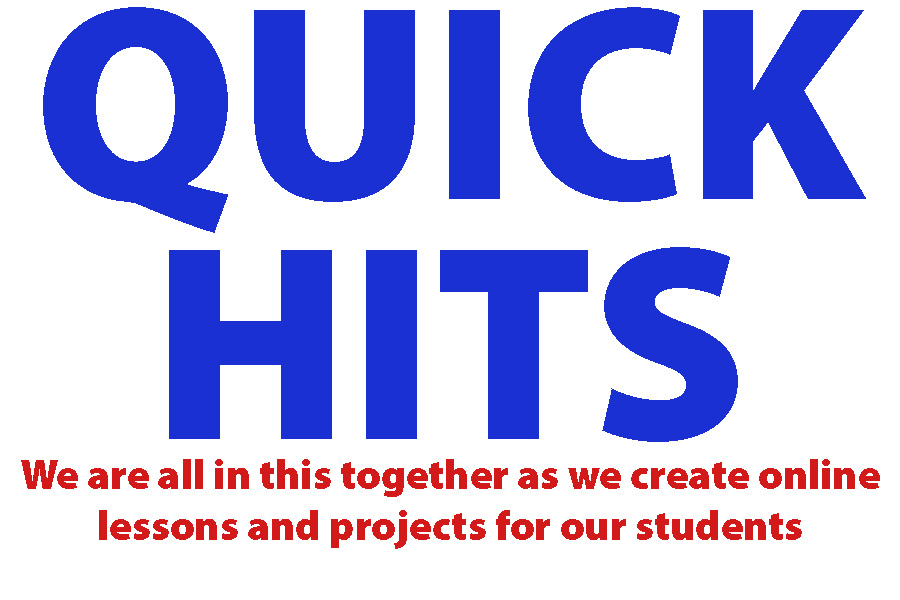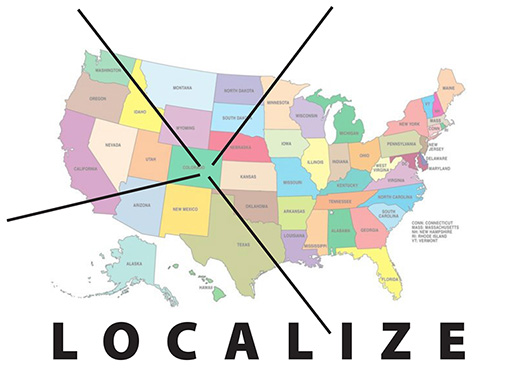The default mode in most introductory journalism classes is to quickly get students interviewing someone (normally someone in the class, since they are a captive audience). There is logic to this, since an exercise that organizes the room into pairs, with the instructor setting up first one ten-minute segment for student A to interview student B, and then another ten minutes for the students to reverse roles. The teacher may begin with a quick lesson on interviewing or simply having some interesting questions ready to ask, but even that is not really necessary. We love to talk to other people. I like to describe it as a “first date,” perhaps in a local pizza place, as students attempt to get to know one another.
But I wonder if we aren’t minimizing an even more basic part of reporting when we leap right into interviewing. I do a lot of judging for various organizations across the country, and I see an alarming lack of in-person reporting. So many stories about the big game, or the school play, or the field trip, and so many times it is clear that EVERYTHING in the story comes from interviewing participants after the fact.
Observation doesn’t necessarily lead to first person writing (though it might if the reporter somehow is an important character in the event or situation). Observation does lead to more “sensual reporting,” more use of all the reporter’s senses in the reporting. It can lead to more insightful follow up questions.
- “I noticed that you took some extra time before you came back on the court after that last time out. What were you thinking then?”
- “You stood apart from everyone else in the cast for a few minutes, silent. Tell me what was going through your mind before you made your entrance in the final performance of your senior year.”
- “Most people on the bus seemed to sit with friends, but you sat with a couple freshman for most of the trip to state. I wondered what was happening. What did you talk about?”
We were all observing long before we were talking, and interviewing is a step further than simply talking. Curiosity begins with what we see and hear and feel and smell and even touch. It’s possible that teachers spend so much time moving new journalists away from writing subjectively — and properly so, since most journalism benefits from a more objective, third person voice — that we push in-person observation to the background.
But consider this: in the daily journalism we consume, don’t we demand observation from our reporters? We want them on the scene, and behind-the-scenes, taking us places we will never go, or can’t go. A real problem with reporting on the current pandemic and the suffering in the hospitals and nursing homes is that reporters are only rarely allowed to observe what is happening. If even family members cannot be with stricken relatives, how can we justify letting journalists near them?
We are left, as readers, with lots of statistics and press conferences and rushed interviews with exhausted health care workers and mourning families. All those things do equal “news,” of course, but the disconnect between close observation and interviewing “at a distance” has created the opportunity for people to downplay or even deny the suffering and the fear. And it works the other way, as well. Lack of observation leaves us at the mercy of people’s vague memories and inability to fully capture their own emotions when it is time to report on how people are coping, how families are growing closer, and how we are finding joy.
We can’t fix that disconnect right now, of course, but we can prepare everyone for some sort of resumption of “normality,” and for opportunities to use our natural curiosity to begin actively observing once again.
One way to do that is to simply create a situation where a reporter sits or stands in one place and observes what is happening all around. For instance, a student could begin (safely) sitting in a car near the front door of a King Soopers and pay attention to what shoppers are doing. How many are wearing masks? How many are wearing gloves (and how many are taking off those gloves and tossing them onto the cement in the parking lot once they have left the store)? Are they alone or in family groups? Any sense of how much is being purchased? Can they see packages of toilet paper or other paper products? Are people interacting with one another, and are there any trends (less verbal greetings and more quick waves… people stopping at neighboring cars to talk over a car hood)?
Of course, observation alone cannot get at the entire story, and the reporter would love to follow up with some questions that get into motivations and what is on people’s minds. Those opportunities will return, eventually, and maybe some shoppers would be fine right now talking at a safe distance with a student who has popped out of a vehicle with a notebook and pencil.
Warning: one impulse would be to sit in the car and record people going in and out of the store. This seems creepy and will likely result in someone challenging the student doing the recording. The point is not to “catch” something or someone, but to provide better information that can be used to develop better questions. People are much more comfortable with someone writing in a reporter’s notebook.
From the perspective of educating young journalists, the point would be to BEGIN with observation.
I once had some students do an observational experiment in which they placed a $5 bill on the floor of a hallway at school, just before passing period. A student simply observed what happened with that bill. How quickly was the bill picked up? Did the student ask anyone in the vicinity if the money was theirs? Did the student hand over the bill to a teacher or take it to the office? Did the student gleefully pocket the cash and briskly proceed to the next class? I won’t tell you what they discovered (and it eventually cost them about $30 total). That was in another place, nearly 25 years ago. It was not scientific but the anecdotes became the basis of lots of questions the reporters asks of psychologists and law enforcement and our own administration.
Below you will see the opening of a longish feature story that won the Pulitzer Prize for Feature Writing in 2007. It is based on observation, though lots of interviewing emerged later. Thirteen years is a long time ago, and no high school readers will remember this sort of “stunt.” Perhaps it’s time to plan some sort of observational experiment for a future story.
A final note: you will find the link to the entire story at the end of this post. And you will find some videos, taken with hidden camera, that help you in understanding what the music sounded like and how people behaved. The story can stand on its own, but it’s a nice reminder that we can combine media to create more compelling narratives in our work.
Pearls Before Breakfast: Can one of the nation’s great musicians cut through the fog of a D.C. rush hour? Let’s find out.




